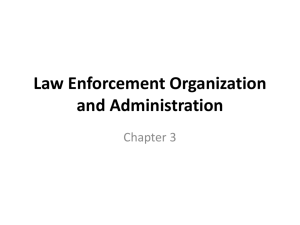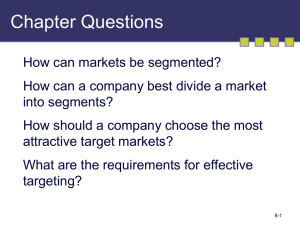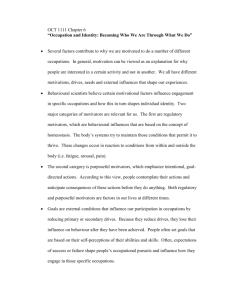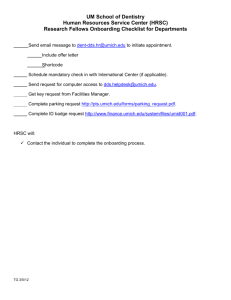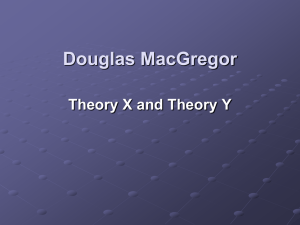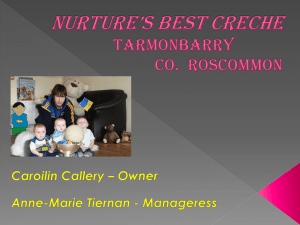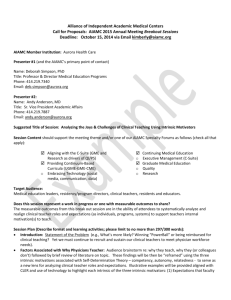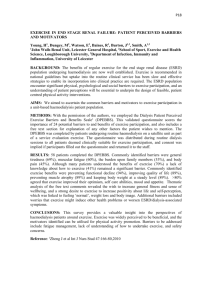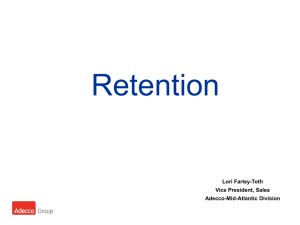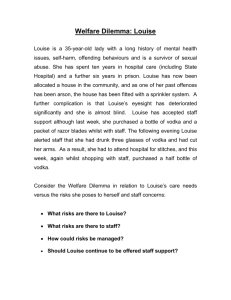Interpreting Your Career Leader Self Assessment
advertisement
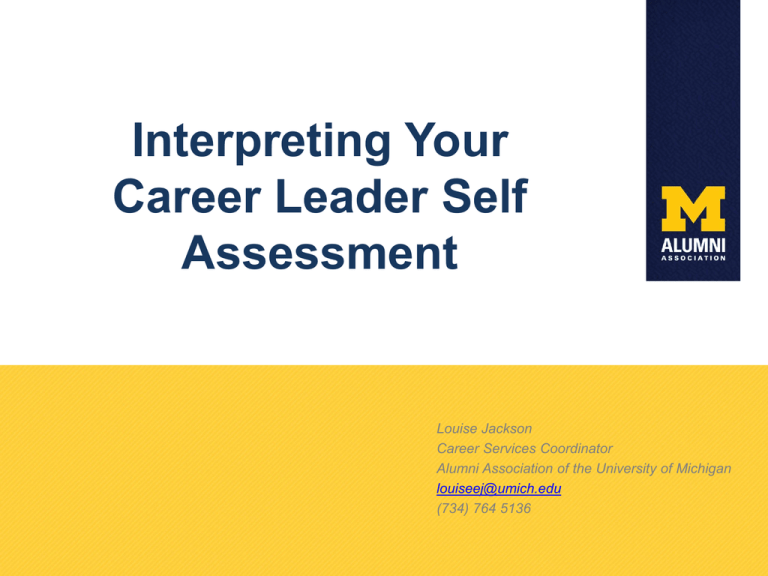
Interpreting Your Career Leader Self Assessment Louise Jackson Career Services Coordinator Alumni Association of the University of Michigan louiseej@umich.edu (734) 764 5136 Why does it matter? • “I want to work on wall street in finance” • Meaningful work requires a realistic appraisal of your Interests, Motivations and Skills. • Your Career Vision- YOU need to build it Your Vision • In five to seven years, where do you want to be in terms of: – Functional role – Industry knowledge – Organizational culture – Skill acquisition – Relationships with significant others – Work/Life Balance – Geographic location – Community involvement • How deeply have you imagined these things? • Significant advantage in: • • Job search Career advancement • “Closer”- remember the journey Some History… • By Drs. Timothy Butler and James Waldroop, psychologists at the Harvard Business School and authors of: • Discovering Your Career in Business • The 12 Bad Habits That Hold Good People Back • Getting Unstuck • Numerous articles in the Harvard Business Review, Fortune, Fast Company, and other popular business press • Using a database of more than 400,000 business professionals collected over 13 years Your Interests • Interests patterns are stable- they don’t change much over life times. • Independent of each other • Forced to make a choice (no middle point) 7 Your Motivators • No good or bad motivators • Relatively stable but could change • Should be in 9-12 range. If you have no score over 8retake • Don’t base a career choice on motivators alone 10 Your Skills 12 Self Efficacy • “Even though I can’t do it right now, I can learn what it takes to be successful” • Why does it matter? • Self Efficacy Influences • Not innate for most of us – Success breeds success/Small wins – Vicarious experience – Verbal persuasion Now what? • Successful career cannot be accomplished without detailed self understanding • Use this knowledge and language to build your career brand • Remember interests and how they match with your current or future career are the most important • How your work’s culture fits your personality is important too • You’re the pilot, not the passenger here. You CAN build skills through practice and persistence Questions? Louise Jackson Career Services Coordinator Alumni Association of the University of Michigan louiseej@umich.edu (734) 764 5136
